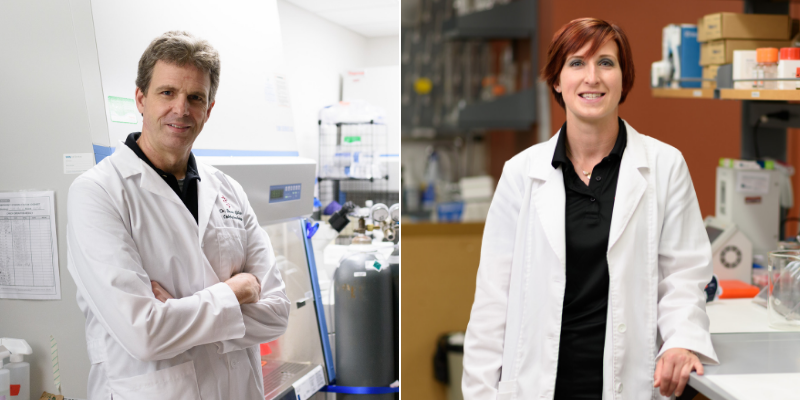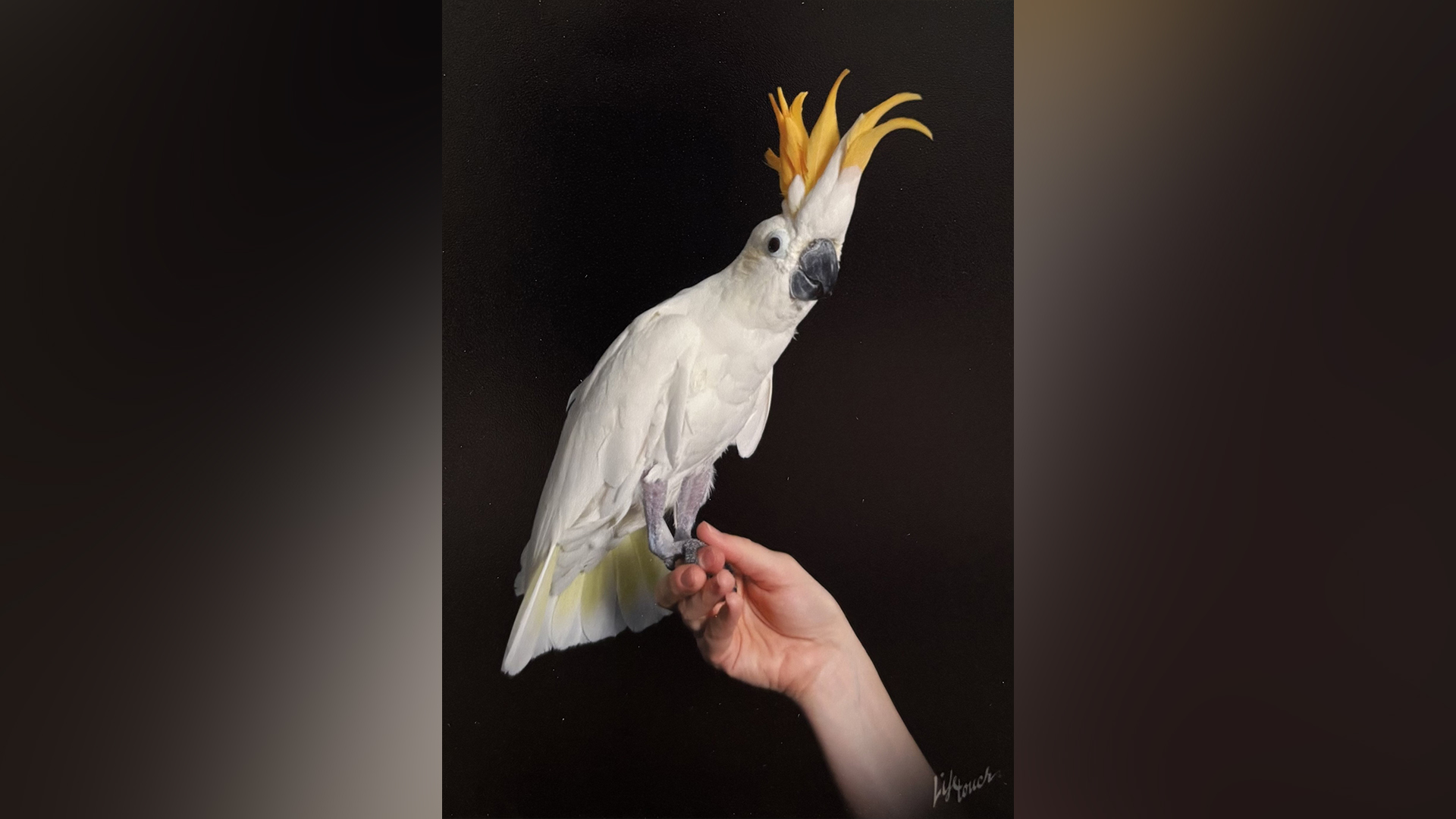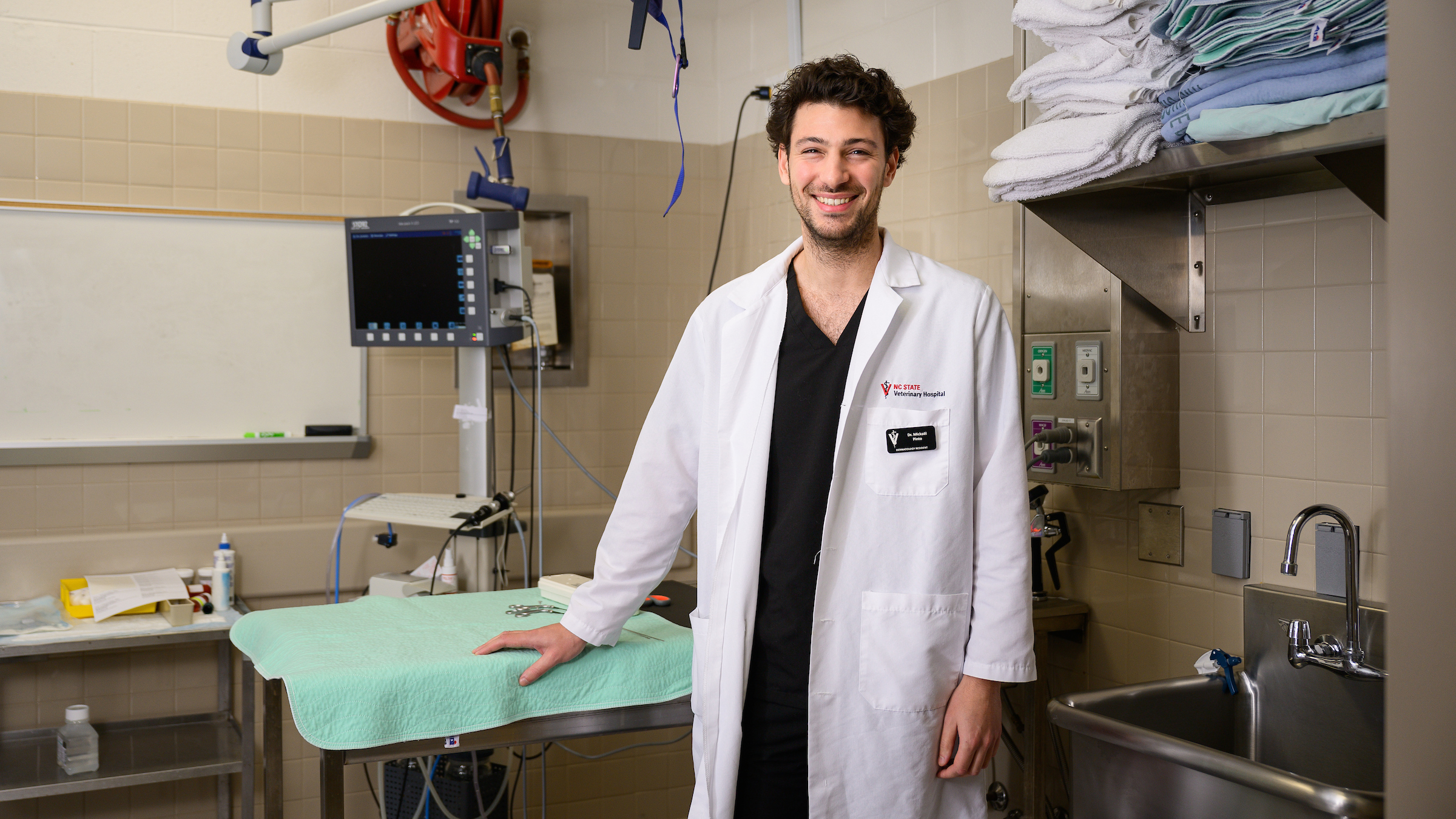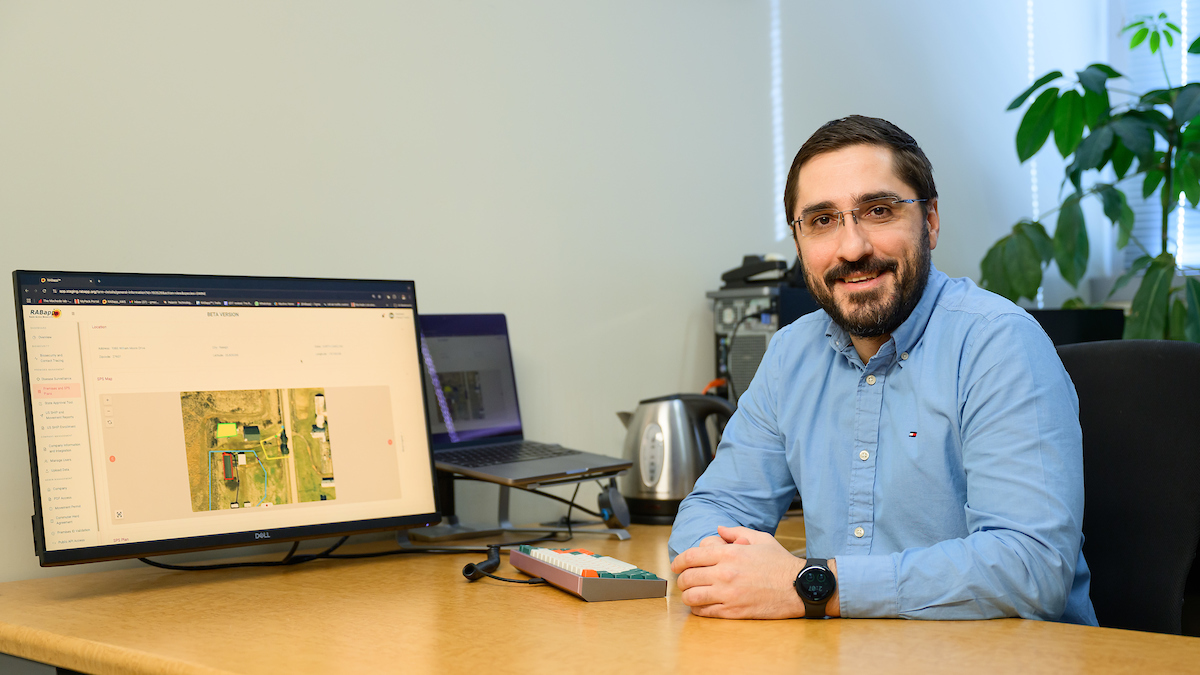CVM Faculty Awarded Funding for Innovative Therapy Research

Two projects from NC State College of Veterinary Medicine researchers involving new chronic pain therapies for both animals and humans have received additional funding from the NC Translational and Clinical Sciences Institute.
Studies from Brian Gilger, professor of ophthalmology, and Lauren Schnabel, assistant professor of equine orthopedic surgery, are among 15 pilot projects selected for grants this year by TraCS, based at UNC-Chapel Hill. The TraCS grants recognize research with promising clinical potential and translational impact.
Gilger’s project uses gene therapy to treat noninfectious uveitis, or NIU, a common cause of blindness affecting about 25 percent of horses and 300,000 Americans yearly, Gilger states in his study proposal.
Through a single treatment injection with the AAV-transgene, Gilger aims to create immune barriers to eye inflammation caused by the disease. The treatment may also eventually form the basis for long-term therapy for both animals and humans with NIU.
Gilger is collaborating with Matthew Hirsch, UNC assistant professor of ophthalmology, on the study.
Schnabel is working with Brian Diekman, UNC assistant professor of biomedical engineering, on a new approach to treating post-traumatic osteoarthritis. Both animals and humans can develop post-traumatic OA following joint injuries. Schnabel and Diekman will look into whether using a type of drug to eliminate senescent cells from damaged joints can effectively treat the painful condition.
Senescent cells have those that have stopped dividing and are associated with conditions commonly seen in older humans, such as chronic inflammation and tissue degradation. Horses and humans share similar immune and inflammatory responses to post-traumatic OA.
Recent estimates note that 5.6 million people in the U.S. have post-traumatic osteoarthritis — 12 percent of all OA cases. That number is projected to grow because of an aging population and prevalence of obesity.
Gilger’s lab at the CVM is responsible for groundbreaking studies and treatments for eye injuries and diseases. Schnabel specializes in regenerative therapies and stem cell immunology, and her lab’s work has led to breakthroughs in stem cell therapies for horses.
The two also frequently work together. This year, they co-authored a study on a new stem cell therapy to treat the chronic equine eye disease immune-mediated keratitis, or IMMK.
For more information on CVM translational medicine, go here.


